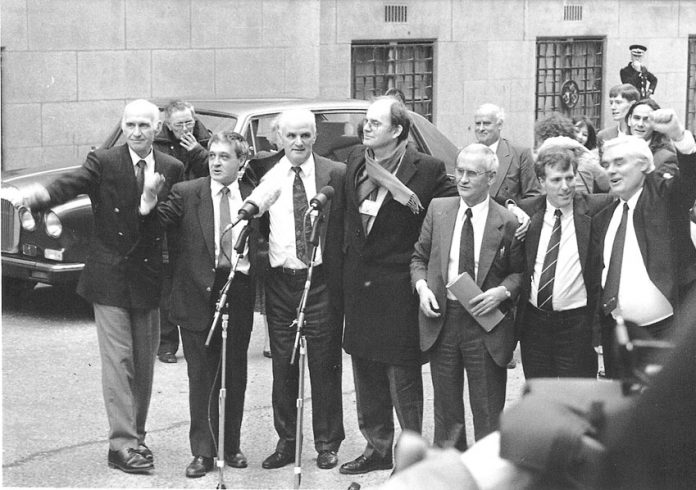
INQUESTS into the deaths of 21 people in the 1974 Birmingham pub bombings are to be reopened, a coroner ruled yesterday.
Louise Hunt, the senior coroner for Birmingham and Solihull, said there had been a ‘wealth of evidence that still has not been heard’ about the atrocities. The double bombing on 21 November 1974 left 21 dead and 182 injured.
The original hearings, which opened days after the attacks, were not continued after the jailing of six men, the Birmingham Six, whose convictions were later quashed. Julie Hambleton, whose 18-year-old sister Maxine was killed in the blasts, said: ‘All we want is to be heard – truth, justice and accountability.’
Hunt heard there was evidence West Midlands Police had missed two potential warnings of the bomb attacks. It included a comment made by men in an overheard conversation that ‘Birmingham would be hit next week’.
West Midlands Police had argued the coroner did not have the jurisdiction to hear the inquests but she said she rejected that submission. The blasts destroyed the Mulberry Bush pub at the base of the city’s landmark Bullring Rotunda and the underground Tavern in the Town.
Those responsible have never faced justice and the only men to be tried for the crime – the Birmingham Six – had their convictions overturned by the Court of Appeal in 1991 after 16 years in prison, after a botched investigation by West Midlands Police.
Hunt reviewed a huge body of police evidence and heard submissions from the victims’ relatives and other interested parties in February. The hearing was told that the overheard conversation was reported to police on 10 November 1974, 11 days before the bombings, but Hunt said there was ‘no indication that the police took any active steps in response to it’.
On the day of the attack, a second tip-off to the police was not followed up, she added. Hunt went on: ‘I have serious concerns that advance notice of the bombs may have been available to the police and that they failed to take the necessary steps to protect life.’
Mrs Hambleton, who has led the campaign for justice with her brother Brian, said she hoped the truth would finally come out. Outside the coroner’s court in Solihull yesterday, she said: ‘Today, we stand united. I’m so proud of all the families, legal team and you (the media).
‘I cannot put into words how we feel. We’ve been crying. An inquest gives us the opportunity to hear from people you wouldn’t normally hear from and it can lead to all sorts of things … the truth … the truth is fundamental.’
One of the six wrongly convicted men, Paddy Hill, said outside the court: ‘They (police) don’t want them (the inquests) because there’s too many skeletons in the cupboard. They had advance warning and they took no notice. I don’t think Birmingham police could spell truth – they’re rotten. I’m very sceptical about getting the truth.’
Following the release of the Birmingham Six in 1991, a reinvestigation was opened, led by the then Chief Constable for the West Midlands, Ron Hadfield, and the Director of Public Prosecutions (DPP), Barbara Mills.
A team of 40 officers generated 5,000 documents, statements and reports. In 1994 they concluded there was insufficient evidence for proceedings against any person, and the inquiries that had been carried out were to the satisfaction of the DPP.
Mills placed a 75-year embargo on files relating to a Devon and Cornwall Police inquiry into the West Midlands Police investigation. West Midlands Police Chief Constable Dave Thompson said he welcomed the coroner’s decision. ‘West Midlands Police not only failed to catch those responsible but caused a miscarriage of justice,’ he said.
‘I have said, and reiterate again, it is the most serious failing in this force’s history. I understand families of those who lost their lives are frustrated, disappointed and angry. West Midlands Police will support this inquiry as we have done through the recent hearings by the coroner which determined whether the inquest should reopen. I hope the new inquest provides answers to families.’